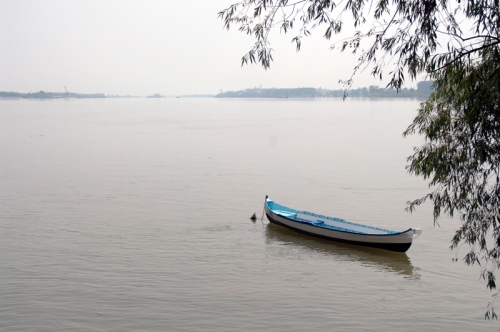How many people would say that feeling different from all others, being out of their element is so beneficial that they would actively pursue it?
Many people would say that being foreign, feeling foreign while living in a different culture is a challenge. But actually it’s an advantage; the advantage of being turned upside down. It’s first of all a tool for self-discovery and self-development. No wonder study abroad programs are the most rapidly growing college programs these days. True, the first excuse for those is learning the local language, but more than that, the greatest benefit is learning about, considering the value of and negotiating how to deal with a different way of thinking. And first of all, it’s acquiring the ability to think about yourself from the sidelines.
So it would seem that after a century of mass immigration and in the age of globalization the experience of being foreign would be ubiquitous and easy. Well, this article in The Economist argues that the condition of foreignness is much more difficult to achieve today. The largest metropolises of the world are already packed of foreigners who are in need of the ever-dwindling locals around them to make them feel foreign. And this exactly is becoming more difficult to attain.
I am not sure about that. Empires and mixes of people have existed since time immemorial. The myth of the Tower of Babel was in fact created around the anxiety of mixing with foreigners. Exiled peoples moved from their original safe spaces and lived among foreigners. Cosmopolitan cities rife of resident aliens such as Constantinople, Rome and Damascus existed long before the rise of nation states.
There is something that has changed in recent decades, though, and it’s not only the numerical intensification of the process of moving to foreign lands. It’s the requirement for those who live in their country of origin to adhere to a strict code of localness and to a national identity that has changed. Even people who have never traveled are now interested in tasting dishes from foreign cuisines, imagine a dream vacation somewhere beyond the borders of their country and are much more open to adopting traditions “belonging” to different places. You see, even in the United States the terms “foreign student” and “foreign languages” have been replaced by “international” and “world”. The concept of foreignness and its implication of danger or pollution is being gradually abandoned.
And it’s a new, but at the same time an old state of things, from before the existence of national borders. Really, this is just a better deal: it means that you can become “foreign” easier, even as you stay in the same place. You can cast away the constraints of a “nationalness” and be free from a set identity. After all, foreignness exists only as long as iron-clad identities do.
And if you still want to experience that feeling being lost, feeling different and having to learn new survival rules, you have the option of small towns. In any country, even your own.


I agree with your doubts about the Economist article; “cosmopolitan” is not remotely a modern word, in origin or use. Some of the difficulty in feeling foreign is related to the view of the term as pejorative. Some of the difficulty seems to stem from a lack of thinking about ourselves, at all. One of the great ironies about this age of self-help, self-fulfillment and otherwise selfishness is that people go about that business without really thinking about the ‘self’ behind the self. There’s a lack of self-reflection as people just whir through life or occupy a convenient space on a couch. There’s too much noise to be foreign.
Thanks for the post–BMP
Thank you for the thoughtful comment, miscellaneous soap box! “There is too much noise to be foreign” – so true.